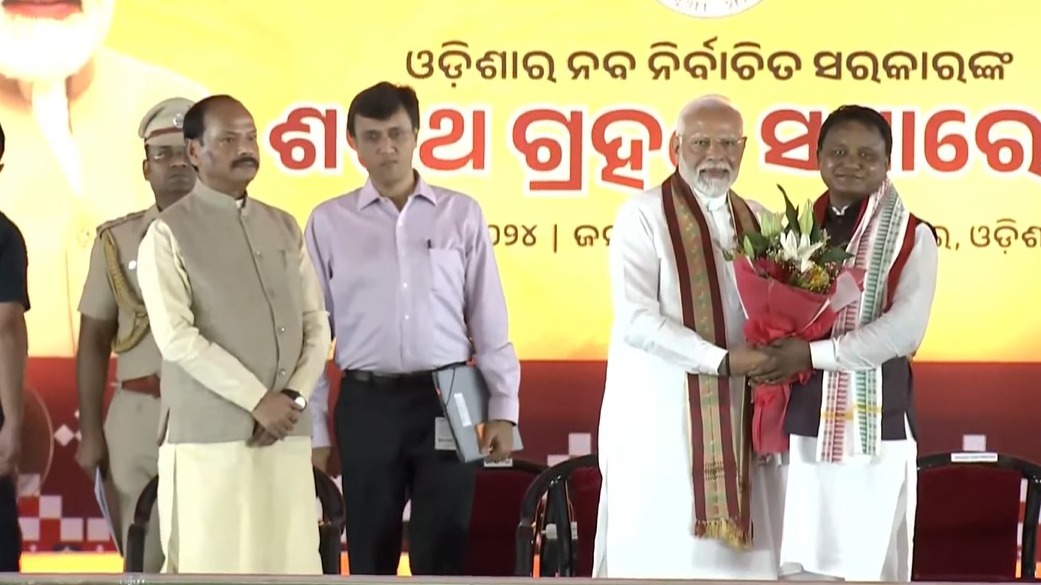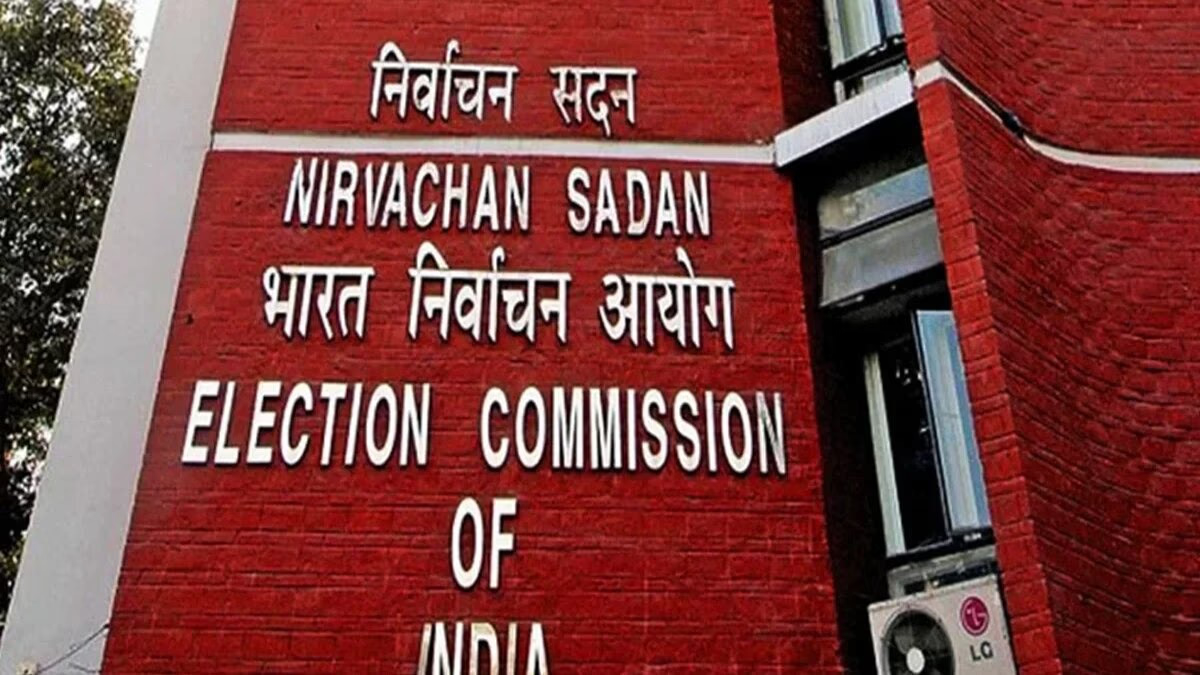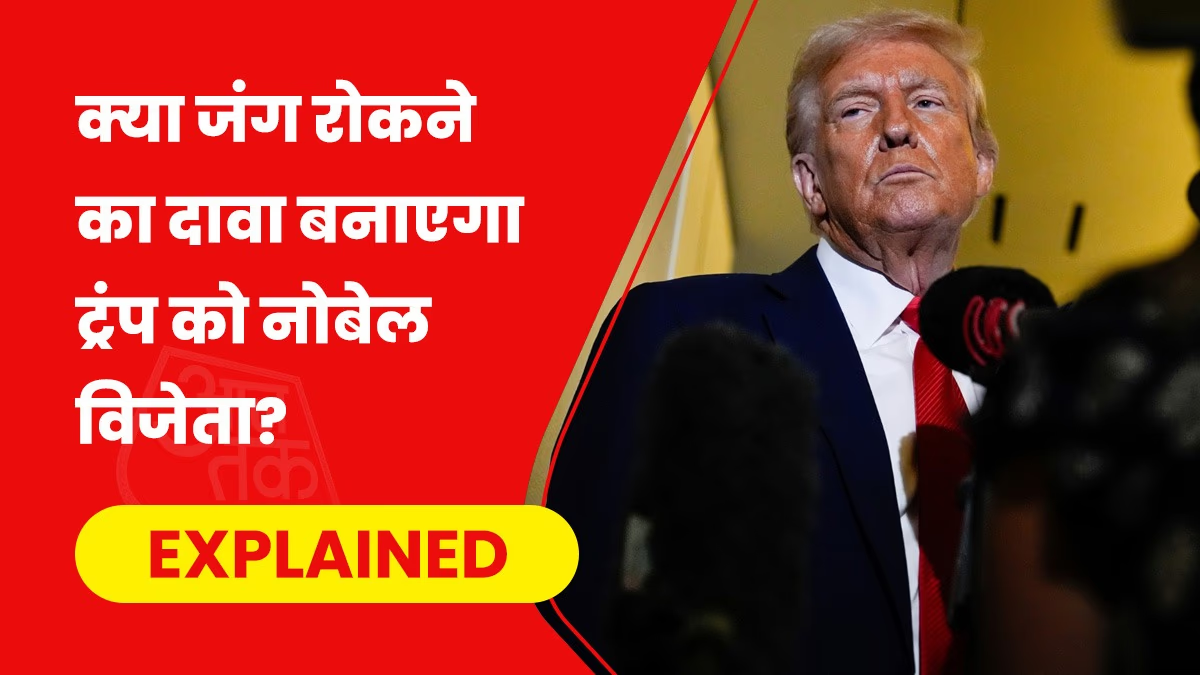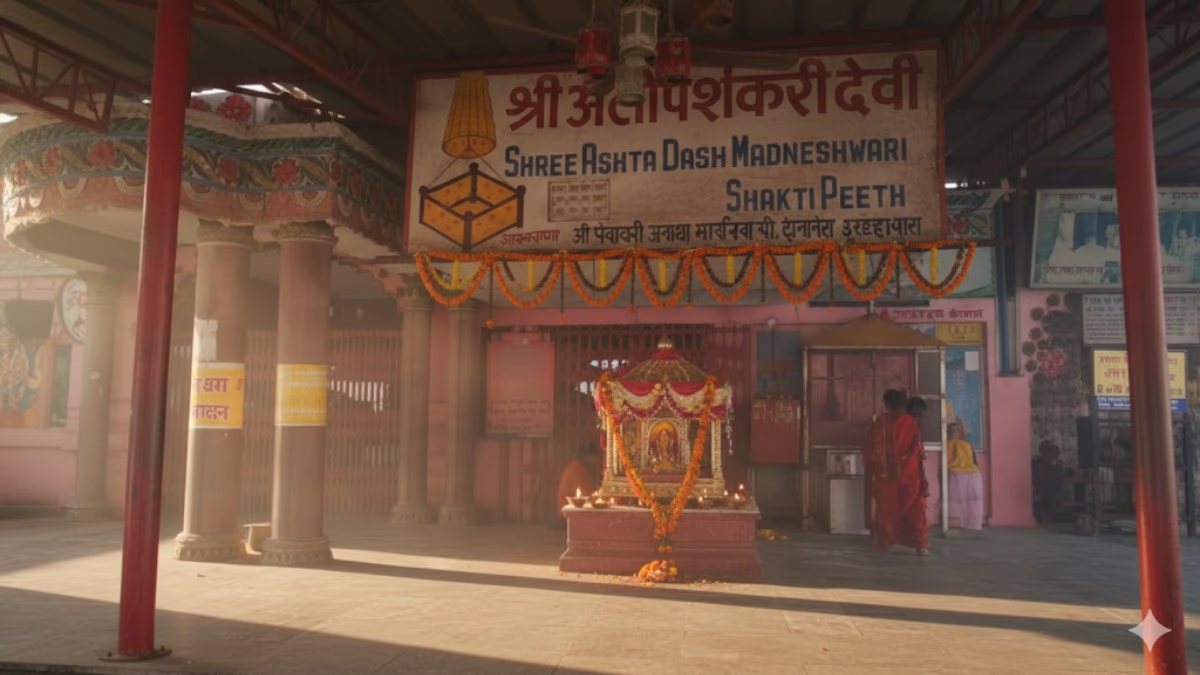Following the Bharatiya Janata Party (BJP)’s striking victory in the Odisha elections, speculation buzzed about who would succeed Naveen Patnaik as the Chief Minister. After Patnaik's 24-year tenure, multiple names from Dharmendra Pradhan to BJP State President Manmohan Samal and Jay Panda were discussed. Laxman Bag, Pratap Sarangi, and Kanak Vardhan Singh Deo, who rose to fame by defeating Patnaik, were also mentioned as potential candidates. The guessing game continued for about a week.
In Bhubaneswar on June 11, following a BJP Legislative Party meeting, a new CM was named. All contenders remained in the fray until Mohan Charan Majhi emerged as the leader. Defence Minister Rajnath Singh, as the observer, announced Majhi's name after the meeting, remarking that Kanak Vardhan Singh Deo proposed his name. Today, Bhubaneswar saw the inauguration of the new government.
With the swearing-in of the new government, Odisha bids farewell to an era typified by Naveen Patnaik and welcomes the dawn of 'Mohan Raj'. Today, June 12, marks Mohan assuming office as Odisha's new Chief Minister, ushering in the end of Patnaik’s 24-year legacy and the beginning of a new chapter. The discussion now turns to why BJP placed its bet on Mohan Charan Majhi, sidelining many heavyweights.
A Strong Tribal Face
Mohan Charan Majhi is a robust tribal figure in Odisha's BJP. Recognizing Odisha's substantial tribal population, the BJP chose not to risk appointing a non-tribal CM, mirroring their regrettable decision in Jharkhand with Raghubar Das, which resulted in failing to reclaim power after five years. Odisha’s over four-crore population includes about one-crore tribals, comprising nearly 23%. The BJP strategized early to target tribal voters ahead of elections, a move that paid off. Sustaining this voter base, now detached from Patnaik’s party, is a priority for the BJP.
A Close Relationship with the RSS
While the BJP had many other choices for a tribal CM, Majhi was selected. His appointment is backed by strong ties with the Rashtriya Swayamsevak Sangh (RSS). Majhi has been an active participant in RSS activities, especially in the tribal-dominated areas. A four-time legislator, Mohan Charan Majhi played a pivotal role in strengthening BJP's footprint in the tribal belt.
An Outspoken Leader in Assembly
Mohan Charan Majhi was BJP's vocal representative in the opposition during Patnaik’s governance. Notably, Majhi threw pulses at the Speaker's podium during a session in 2023, earning him a suspension from the assembly. He later argued that the pulses were presented, not thrown. Regardless, his actions sent a strong message to the public from within the house. Majhi's assertive opposition paid off with the CM position as BJP came into power.
An Understanding of Governance
Mohan Charan Majhi's political journey spans from the grassroots level of Sarpanch to minister. Serving four terms as a legislator and once as a minister in the Patnaik-led government, he understands the governmental hierarchy and proximate issues that arise at all levels. These attributes played into his selection as the new CM. Notably, he was first elected as an MLA on a BJP ticket in 2000, followed by subsequent terms, missing only the 2009 and 2014 assemblies, but returning victoriously in 2019 and 2024.
An Organisational Leader
Majhi is known for his organizational aptitude within Odisha BJP. In a state where the party is forming a government solely on its numbers for the first time, harmony between the party and the government is crucial. To minimize potential discord, the BJP leadership likely chose a well-connected organizational figure. Majhi’s reputation as both a knowledgeable administrator and organizational architect has strongly worked in his favor.
The Jharkhand Factor
Jharkhand, like Odisha, is tribal-centric and due for assembly elections by year-end. Concerned that appointing a non-tribal CM in Odisha could be negatively perceived by Jharkhand's tribal population, the BJP may have acted preemptively. With Vishnudev Sai appointed in Chhattisgarh and Mohan Charan Majhi in Odisha, the electoral politics of tribal states become a key factor. Importantly, Odisha contributes 9.20% to India's total tribal population.
It's worth mentioning that the Odisha legislative elections, which took place alongside the Lok Sabha polls, culminated in BJP’s triumph in 78 assembly constituencies. Odisha's assembly consists of 147 seats, and the majority threshold is 74. This is the first instance of BJP receiving a mandate to govern Odisha with an outright majority. Previously, BJP participated in Odisha's governance as a coalition partner under the command of Naveen Patnaik's Biju Janata Dal.




